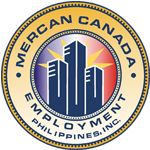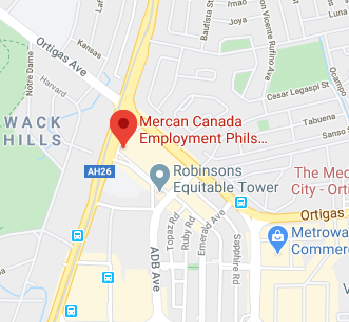Student Direct Stream (SDS)
Student Direct Stream (SDS)
The Student Direct Stream (SDS) is an expedited study permit processing program for those who are applying to study in Canada at a post-secondary designated learning institution (DLI). The SDS is available to legal residents who reside in
- Antigua and Barbuda
- Brazil
- China
- Colombia
- Costa Rica
- India
- Morocco
- Pakistan
- Peru
- Philippines
- Saint Vincent and the Grenadines
- Senegal
- Trinidad and Tobago
- Vietnam
To be eligible, applicants must meet specific requirements by providing documentation up front.
On this page
- About the SDS
- Eligibility criteria
- Incomplete applications
- Family members of study permit applicants under the SDS
- Prerequisite courses and bridging programs of study
About the SDS
Some international students can get their study permits faster using the SDS. IRCC processes most SDS applications within 20 calendar days if the eligibility requirements are met.
Foreign nationals who are eligible for SDS processing are still subject to all other eligibility and admissibility requirements under the Immigration and Refugee Protection Act (IRPA) and Immigration and Refugee Protection Regulations (IRPR).
Eligibility criteria
The applicant must include the following documents to be eligible for SDS processing:
- proof of a valid language test result that must not be more than 2 years old at the time the SDS application was received by IRCC
- Language tests must be taken in their in-person format to be accepted for the SDS; online remotely-proctored tests will not be accepted for SDS purposes.
- The test result must show that all four of the language abilities were tested (speaking, listening, reading and writing).
SDS applications received before August 10, 2023:
SDS applications received on or after August 10, 2023:
Sub-tests and test variants not listed above, including but not limited to IELTS One Skill Retake, PTE Academic UKVI, TEFAQ, and TOEFL iBT My Best Scores, are not approved under the SDS program.
- proof of a guaranteed investment certificate (GIC) of CAN$10,000 or more from any bank insured by the Canada Deposit Insurance Corporation (CDIC) or any bank listed on the IRCC SDS web page.
The GIC must meet the following criteria:
- When the GIC has been purchased, the bank provides a letter of attestation, the GIC certificate, the investment directions confirmation or the investment balance confirmation to the applicant.
- The bank holds the funds in an investment account or a student account that is inaccessible for release to the applicant until the applicant’s arrival in Canada.
- Upon entry to Canada, the bank must validate the client’s identity before releasing funds to the study permit holder.
- The applicant receives an initial disbursement after the bank has verified their identity. It is recommended that the remaining funds be disbursed in monthly or bimonthly instalments over a period of 10 to 12 months.
- proof of full payment of tuition for the applicant’s first year of study
This may be in the form of the following:
- a receipt from the DLI
- an official letter from the DLI confirming payment of tuition fees
- a receipt from a bank showing that tuition fees have been paid to the DLI
- proof that the tuition fee amount has been transferred into a repository account at the DLI to be applied to the tuition bill at a later date
- letter of acceptance from a post-secondary DLI
- most recent secondary or post-secondary educational transcript
- proof of completion of upfront medical examination from a panel physician for applicants
- who have lived or travelled for 6 months in designated countries or territories during the year before coming to Canada
- whose field of study requires upfront medical examination results
Note: If the applicant took an upfront medical exam, they must include a copy of the IMM 1017B Upfront Medical Report form that the doctor gave them after their exam. Doctors using the eMedical system will give the applicant an information sheet print out.
In addition to the above criteria, applicants for SDS processing must include as part of their electronic application (e-application) the following documents:
- Application for Study Permit Made Outside Canada form [IMM 1294] (PDF, 566 KB) (overseas)
- Family Information form [IMM 5645] (PDF, 1.56 MB) (if applicable)
- Schedule 1 – Application for a Temporary Resident Visa form [IMM 5257] (PDF, 533 KB) (if applicable)
- marriage licence or certificate or Statutory Declaration of Common-Law Union form [IMM 5409] (PDF, 637 KB) (if applicable)
- Use of a Representative form [IMM 5476] (PDF, 648 KB) (if applicable)
- Attestation of issuance of your Certificat d’acceptation du Québec (CAQ – Québec Acceptance Certificate) for studies from the Ministère de l’Immigration, de la Francisation et de l’Intégration (MIFI) for applicants destined for Quebec
- application processing fee payment and biometric processing fee payment (if applicable)
- proof of identity
- photocopy of the information and biographical data page of the applicant’s passport
- any additional documents specified by the visa office instructions for the applicant’s region
Note: In most cases, the applicant is required to submit biometrics. After the applicant has submitted a complete application, including the payment of the application and biometric processing fees (if applicable), they are sent a biometric instruction letter (BIL), which includes instructions on submitting biometrics.
Officers may also request additional documents from the applicant at any time to make a decision on their application.
Officers must be satisfied that the applicant is a bona fide student and will leave Canada by the end of the period authorized for their stay.
Incomplete applications
Incomplete applications are refused. With the exception of the biometric fee, if the application processing fee has not been included or is incorrect, the application is refused. If the biometric fee is missing, the officer is to request the fee.
Family members of study permit applicants under the SDS
Family members of principal applicants who are applying under the SDS are eligible for concurrent processing if they apply at the same time as the primary applicant. For more information, see the definition of a family member in subsection R1(3).
Temporary residence applications (work permit, study permit and temporary resident visa applications) of the accompanying family members must be submitted online as part of a family grouping.
Prerequisite courses and bridging programs of study
Applicants who are taking a prerequisite course or bridging program of study at a DLI before starting their main program may be eligible to apply under the SDS, provided they meet all the program eligibility criteria.
Example
Applicants still need to submit an e-application from overseas. However, the prerequisite course or bridging program of study must be clearly identified as such in the applicant’s letter of acceptance, and the applicant’s main program of study must lead to a degree, diploma or certificate.


